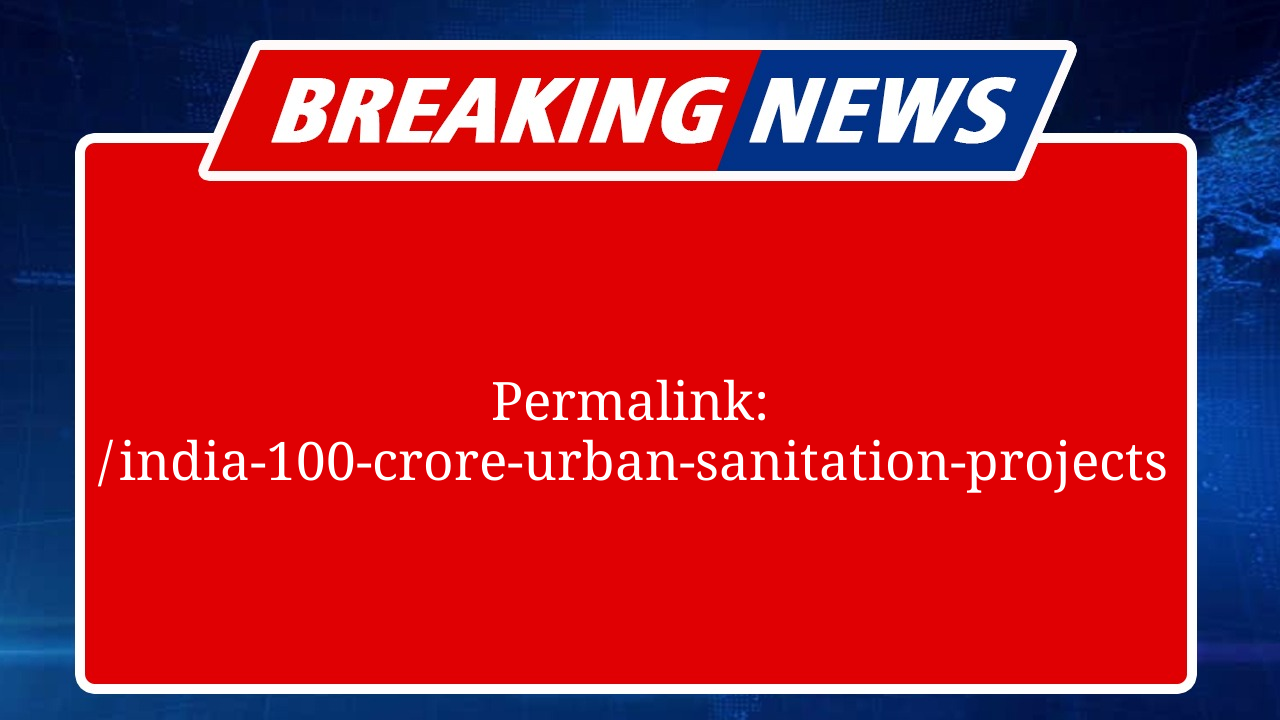“The Indian government has committed ₹100 crore to bolster urban sanitation, focusing on modernizing infrastructure and reducing open defecation. Projects under this initiative aim to enhance sewage systems, waste management, and public toilet facilities across cities, aligning with the Swachh Bharat Mission’s vision. This funding underscores a renewed push for cleaner, healthier urban environments.”
Government Boosts Urban Sanitation with ₹100 Crore Investment
The Indian government has announced a significant allocation of ₹100 crore to advance urban sanitation projects, marking a renewed commitment to the Swachh Bharat Mission’s goal of a cleaner India. This funding, revealed in recent budgetary plans, targets critical gaps in urban infrastructure, including sewage treatment, solid waste management, and the construction of modern public toilets. The initiative aims to curb open defecation and improve public health in cities grappling with rapid urbanization.
Official sources indicate that the funds will be channeled through the Ministry of Housing and Urban Affairs, with a focus on upgrading sewage networks in tier-2 and tier-3 cities. Approximately 4,700 cities in India lack comprehensive sewerage systems, leading to untreated wastewater polluting rivers and groundwater. The new allocation will support the installation of decentralized sewage treatment plants (DSTPs) and fecal sludge management systems, drawing lessons from successful models in states like Kerala and Rajasthan.
Under the Atal Mission for Rejuvenation and Urban Transformation (AMRUT) 2.0, the government plans to deploy ₹60 crore for upgrading urban water and sewage systems, while ₹40 crore will fund community-led initiatives, including public toilet construction and waste segregation programs. The National Mission for Clean Ganga will also receive a portion to enhance waste management in Ganga basin cities, building on the ₹1,550 crore already invested in the region since 2014.
The Swachh Bharat Mission-Urban 2.0, launched in 2021, has already facilitated the construction of 6 million household toilets and nearly 6 million community toilets. However, challenges persist, with 6.1% of urban households still lacking access to proper sanitation facilities, according to the National Family Health Survey (NFHS-5). The new funding aims to address these gaps by prioritizing marginalized communities and slum areas, where sanitation infrastructure is often inadequate.
Private sector participation is also being encouraged, with incentives for startups and micro-enterprises to develop innovative sanitation technologies. Companies like Garv Toilets, which specialize in low-maintenance, tech-enabled public toilets, are expected to benefit from public-private partnership models. Additionally, the initiative will promote behavioral change campaigns, leveraging social media and grassroots volunteers, or Swachhagrahis, to foster hygiene awareness.
Recent data highlights the urgency of these efforts. Over 126,000 deaths annually in India are linked to diarrheal diseases caused by poor sanitation, per WHO estimates. Urban areas, home to 31% of India’s population, generate massive waste volumes, with cities like Gurgaon struggling despite a ₹1,795 crore sanitation budget over four years. The new funding aims to prevent such mismanagement by enforcing stricter monitoring and community involvement.
State governments, including Uttar Pradesh and Bihar, which received ₹4,205 crore and ₹3,516 crore respectively for Ganga cleanup since 2014 Ascertaining the effectiveness of this funding, the government is exploring collaborations with international organizations like the Asian Development Bank and WaterAid to scale up fecal sludge treatment plants. These efforts align with India’s Sustainable Development Goal 6 targets, aiming for universal access to safe sanitation by 2030.
Disclaimer: This article is based on recent news reports, government announcements, and data from reliable sources such as the Ministry of Housing and Urban Affairs, WHO, and the National Family Health Survey. Information has been cross-verified for accuracy, but readers are advised to consult official government releases for precise budgetary details.
Tags: Urban Sanitation, Swachh Bharat Mission, Sewage Treatment, Public Toilets, Waste Management, AMRUT 2.0, Clean India, Public Health, Fecal Sludge Management, Sustainable Development

